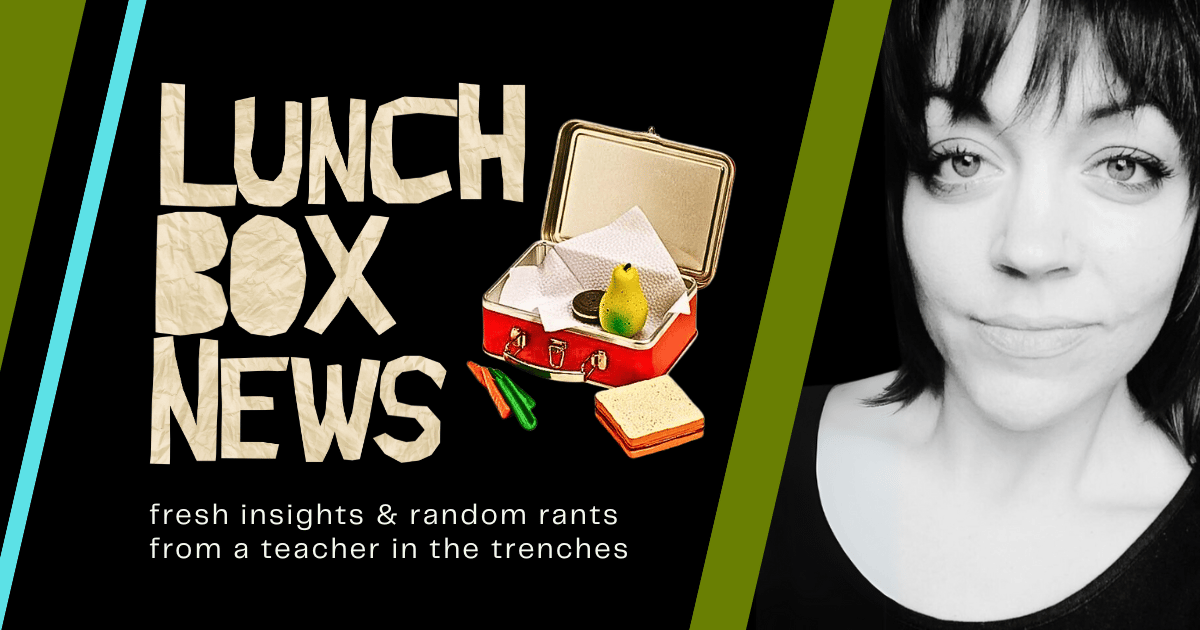“What do you think of Andrew Tate?!”
As soon as the question came, the classroom - usually brimming with high levels of chaos and mayhem - fell quiet. A middle school group, mainly boys, all silent - all staring at me. Someone had shouted the question loud enough for everyone to hear, and now… everyone waited for my answer.
“Why do you ask?”
“Cause we all think he’s cool, he’s got cars and money and stuff.”
“Oh well, in that case, yay for him.” I intentionally feigned total disinterest but had to suppress a smile, and a giggle… I knew what was coming next:
“No but we want to know what YOU think.”
“Why does my opinion matter?”
“Aghhhhh Raffi just tell us!!!” “Yes, tell us!” - one after the other they banded together and demanded I respond. They were laughing, but their faces told me they were in earnest.
“I am not going to tell you what I think…” (cue collective groans from the class) “because it doesn’t really matter what I think, what matters is what YOU think and why.”
“You aren’t going to tell us ANYTHING?!!!”
A group of gobsmacked middle school boys is truly a sight to behold.
…
If you know me at all, you know I talk a lot about going beyond: beyond information, beyond algorithms, beyond the screens that take center stage most days… beyond the endless ocean of distractions, to tap into the one thing that makes learning stick: emotional resonance.
Sure, I could lecture a class all day on verbs and adjectives, on vocabulary and techniques for exam prep. But in almost 30 years of teaching, my motivation has always been the same, for my students, and for myself: why does any of this matter?
I’ve always been painfully honest with my students, and this newsletter will be no different. And the truth is, most things don’t matter to us, unless (and until) they affect us personally.
For my students, the questions usually are: why are we talking about English? Why are we studying and learning in the first place? What difference does it make? Why should anyone care?
For the rest of the world in the middle of so much upheaval right now, the questions are slightly different, but still connected to the classroom (in a more universal way): why are we talking about tech? Why are we debating about AI and its impact on every aspect of our lives? What difference does AI make? And why should anyone care?
…
In the case of my middle school students… they really didn’t care about learning English as much as they cared about the people and trends they saw on social media. Since they knew my classroom was a safe space to ask questions and have real conversations, they all came bouncing into the room one day demanding to know my opinion on Andrew Tate. Not because Andrew Tate had anything to do with my lesson plan that day… but because Andrew Tate was a hot topic and they knew I would have something to say about it.
Instead of rolling my eyes or immediately offering my (rather vehement) opinion, I leaned in to what mattered to them, in that moment. I leveraged their questions and curiosity to get them connected and communicating, not just in terms of learning English but also in terms of life skills like media literacy, critical thinking and the ability to speak your mind without bullying or insulting people who don’t agree with you.
What started as a side topic turned into something much more meaningful, because of the power of emotional resonance.
All of these principles: listening, leaning in, encouraging thoughtful dialogue, respectful debate and enthusiastic involvement from a variety of perspectives - form the foundation of what it means to be human, not just what it means to be a middle school student, or a worker-bee in a random office.
The atmosphere in my classroom was enriched that day because my students felt safe enough to speak up, because they knew their voices mattered. We all learned from each other, and it went far beyond the basics of English.
We learned how to be more human, how to be more connected, more creative and expansive in our critical thinking. We laughed about hilarious videos and memes we found, while doing our research; we talked about what we were going to eat for lunch, and what we wanted to do as soon as the schoolbell rang at the end of the day.
Back then, then debate was over Andrew Tate, and it was a bunch of middle schoolers deciding why he had such a massive following and what (if anything) they should do about it.
Today, the debate is over AI, and everyone is deciding why it is good or bad (according to them) and what (if anything) to do about it.
As I always say, I’m not here to tell you what to do, or what to think. But I hope this newsletter will become a safe place for you to hear different opinions, to share ideas, to get a new perspective and a little inspiration - from a teacher in the trenches - on how you can use your voice to make a difference in your own corner (or classroom) of the world.
PS: I did eventually share my thoughts on Andrew Tate with my middle school class. But not until after they did the work to formulate their own opinion and back it up with research. Everyone was annoyed… until they remembered that learning something new can be fun. And that’s true for all of us, at any age. Here’s to learning, growing and building a better future together, one conversation at a time. 🍏

